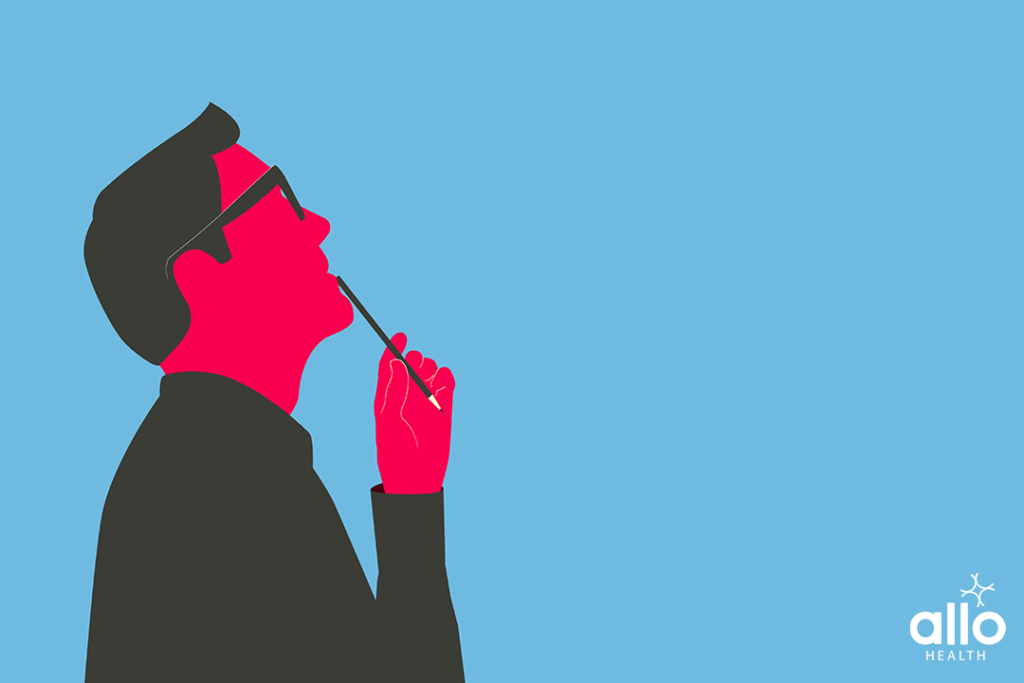Low Libido In Men

Allo Health is dedicated to personalized well-being, offering support and trusted information tailored to individual health goals. The platform emphasizes human-generated content, led by a distinguished medical team of experts, including physicians and sexual health specialists. Their commitment to credibility involves rigorous fact-checking, authoritative research, and continuous updates to ensure accurate, up-to-date information. Allo Health's unique approach goes beyond conventional platforms, providing expert-led insights and a continuous commitment to excellence, with user feedback playing a crucial role in shaping the platform's authoritative voice.

An early career psychiatrist with extensive experience in general adult psychiatry, relationship issues, psychosexual problems & special interest in sexual medicine, disorders with addictive behaviours and Obsessive Compulsive disorders. He is an astute physician with excellent academic record and research experience. He is also a member of World Health Organisation and World Psychiatric Association. His vision and goal for Allo is an inclusive, accessible digital health clinic for psychosexual difficulties.
Why This Was Upated?
Our experts continually monitor the health and wellness space, and we update our articles when new information became available.
Updated on 24 May, 2024
- Article was updated as part of our commitment to diversity, equity, and inclusion.

"The following blog article provides general information and insights on various topics. However, it is important to note that the information presented is not intended as professional advice in any specific field or area. The content of this blog is for general educational and informational purposes only.
Book consultation
The content should not be interpreted as endorsement, recommendation, or guarantee of any product, service, or information mentioned. Readers are solely responsible for the decisions and actions they take based on the information provided in this blog. It is essential to exercise individual judgment, critical thinking, and personal responsibility when applying or implementing any information or suggestions discussed in the blog."
What Is Low Libido In Men?
Low libido or loss of libido in men, also known as hypoactive sexual desire disorder, is a condition characterized by a lack of interest in sexual activity. It is a common condition that affects men of all ages and can have a significant impact on a man’s quality of life.
Causes of Low Libido In Men
There are a number of potential causes of low libido in men. Physical causes can include low levels of testosterone, erectile dysfunction, chronic illnesses such as diabetes or heart disease, and certain medications. Psychological causes can include stress, depression, anxiety, and relationship concerns.
Symptoms of Low Libido In Men
Low libido, or a decreased interest in sex, is a common concern among men. Many factors can contribute to low libido, including physical, psychological, and lifestyle-related concerns. Understanding the different types of symptoms associated with low libido in men can help individuals identify the root cause of their concern and seek appropriate treatment.
Physical symptoms of low libido in men include:
- Erectile dysfunction (ED)
- Premature ejaculation, and difficulty maintaining an erection.
These symptoms may be caused by underlying health conditions such as diabetes, heart disease, or hormonal imbalances.
Psychological symptoms of low libido in men include:
- Anxiety
- Depression
- Stress
These symptoms can be caused by a variety of factors, including work-related stress, relationship concerns, or past sexual trauma.
Lifestyle-related symptoms of low libido in men include:
- Poor diet
- Lack of exercise
- Excessive alcohol consumption
These symptoms can be caused by a variety of factors, including a sedentary lifestyle, unhealthy eating habits, and excessive alcohol consumption.
Treatment of Low Libido In Men

Treatment?for low libido in men can vary depending on the underlying cause. For physical causes, treatment may include testosterone replacement therapy, medication to treat erectile dysfunction, or changes to medication. For psychological causes, treatment may include therapy, counseling, or medication to treat depression or anxiety.
There are several treatments available to help men with low libido.
- Hormone therapy: Low levels of testosterone can lead to low libido in men. Hormone therapy can help to restore testosterone levels (testosterone therapy) to normal and improve sexual desire.
- Medications: Certain medications, such as Viagra and Cialis, can help to improve blood flow to the penis and enhance sexual function.
- Counselling: Psychological factors such as stress, anxiety and depression can contribute to low libido in men. Talking to a therapist or counselor can help to address these concerns and improve sexual desire.
- Lifestyle changes: Making changes to your lifestyle, such as exercising regularly, eating a healthy diet, and quitting smoking can improve overall health and boost libido.
In addition to addressing any underlying physical or psychological causes, there are also several lifestyle changes that can help boost libido. These include:
- Eating a healthy diet: A diet that is high in fruits, vegetables, and lean protein can help improve overall health, including sexual health.
- Getting regular exercise: Regular physical activity can help improve circulation and boost energy levels, which can in turn improve libido.
- Managing stress: Stress can have a major impact on sexual desire, so finding effective ways to manage stress, such as through meditation or therapy, can be important.
- Limiting alcohol consumption: Excessive alcohol consumption over long periods of time can lower libido, so it’s a good idea to limit your alcohol intake if you’re experiencing low libido.











































